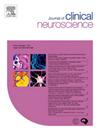缺血性脑卒中患者强化与非强化他汀类药物治疗:一项系统综述和荟萃分析
IF 1.9
4区 医学
Q3 CLINICAL NEUROLOGY
引用次数: 0
摘要
背景:强化和非强化他汀类药物治疗通常用于缺血性卒中的治疗,缺血性卒中是世界范围内死亡和残疾的主要原因。然而,急性期理想的他汀类药物治疗强度仍不确定。本研究评估强化他汀类药物治疗是否比非强化治疗对缺血性脑卒中患者有更好的功能和临床结果。方法综合检索自成立至2025年1月的4个数据库。符合条件的研究包括随机对照试验(rct)或比较急性缺血性卒中患者强化与非强化他汀类药物治疗的观察性研究。meta分析采用Review Manager中的随机效应模型。结果11项研究,53.118例患者符合纳入标准。基于改良Rankin量表(mRS 0-2),强化他汀类药物治疗在3个月时显著改善了良好的功能结局(78.1% vs 75.1%;或1.12;95% ci 1.05, 1.19;p = 0.0008;I2 = 0 %)和良好的功能结局(mRS 0 - 3) (87.1% vs 85.0%;或1.14;95% ci 1.05, 1.23;p = 0.001;i2 = 0%)。然而,强化治疗与脑出血的高风险相关(0.8% vs. 0.5%;或1.60;95% ci 1.01, 2.54;p = 0.05;i2 = 53%)。在卒中复发、出血事件、急性冠状动脉综合征和全因死亡率方面,两组间无显著差异。结论强化他汀类药物治疗可改善缺血性脑卒中患者3个月功能恢复,但对卒中复发、出血事件或死亡率无显著影响。然而,它与脑出血风险增加有关。本文章由计算机程序翻译,如有差异,请以英文原文为准。
Intensive versus non-intensive statin therapy in patients with ischemic stroke: A systematic review and meta-analysis
Background
Intensive and non-intensive statin therapies are commonly used to manage ischemic stroke, a major cause of death and disability worldwide. However, the ideal statin therapy intensity in the acute phase remains uncertain. This study evaluates whether intensive statin therapy leads to better functional and clinical outcomes than non-intensive therapy in patients with ischemic stroke.
Methods
A comprehensive search of four databases was conducted from inception through January 2025. Eligible studies included randomized controlled trials (RCTs) or observational studies comparing intensive versus non-intensive statin therapy in acute ischemic stroke patients. Meta-analysis was conducted using a random-effects model in Review Manager.
Results
11 studies involving 53.118 patients met the inclusion criteria. Intensive statin therapy significantly improved good functional outcomes based on the modified Rankin scale (mRS 0–2) at three months (78.1 % vs. 75.1 %; OR 1.12; 95 % CI 1.05, 1.19; p = 0.0008; I2 = 0 %) and favorable functional outcomes (mRS 0–3) (87.1 % vs. 85.0 %; OR 1.14; 95 % CI 1.05, 1.23; p = 0.001; I2 = 0 %). However, intensive therapy was associated with a higher risk of intracerebral hemorrhage (0.8 % vs. 0.5 %; OR 1.60; 95 % CI 1.01, 2.54; p = 0.05; I2 = 53 %). No significant differences were observed between groups regarding stroke recurrence, bleeding events, acute coronary syndrome and all-cause mortality.
Conclusion
Intensive statin therapy improves functional recovery at three months in ischemic stroke patients but does not significantly affect stroke recurrence, bleeding events, or mortality. However, it is associated with an increased risk of ICH.
求助全文
通过发布文献求助,成功后即可免费获取论文全文。
去求助
来源期刊

Journal of Clinical Neuroscience
医学-临床神经学
CiteScore
4.50
自引率
0.00%
发文量
402
审稿时长
40 days
期刊介绍:
This International journal, Journal of Clinical Neuroscience, publishes articles on clinical neurosurgery and neurology and the related neurosciences such as neuro-pathology, neuro-radiology, neuro-ophthalmology and neuro-physiology.
The journal has a broad International perspective, and emphasises the advances occurring in Asia, the Pacific Rim region, Europe and North America. The Journal acts as a focus for publication of major clinical and laboratory research, as well as publishing solicited manuscripts on specific subjects from experts, case reports and other information of interest to clinicians working in the clinical neurosciences.
 求助内容:
求助内容: 应助结果提醒方式:
应助结果提醒方式:


